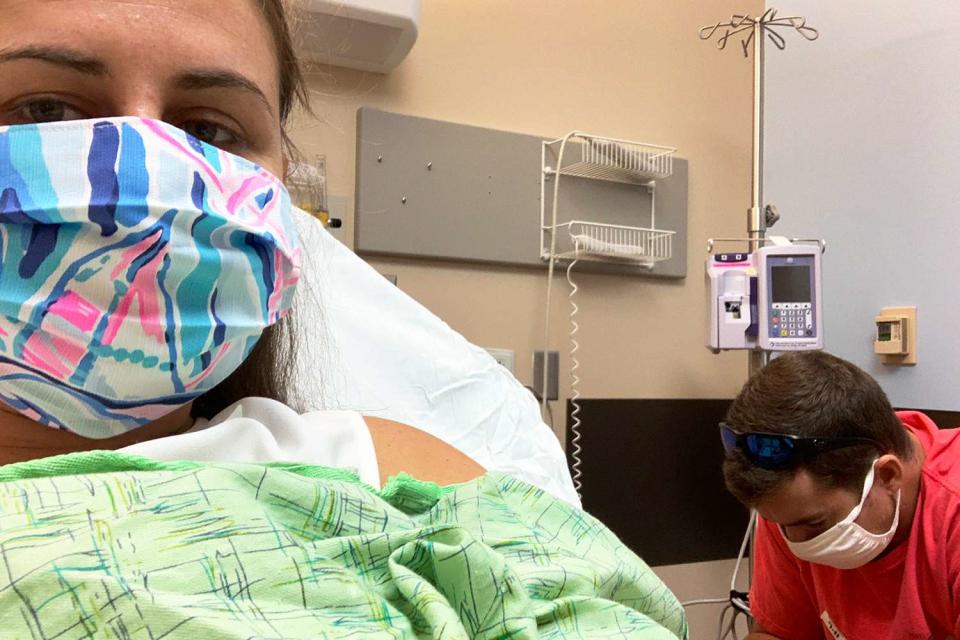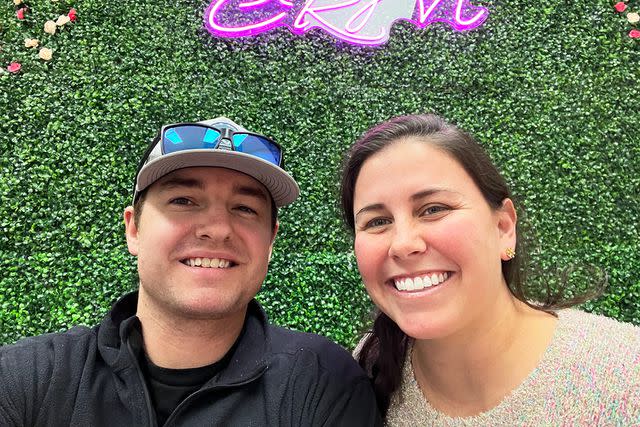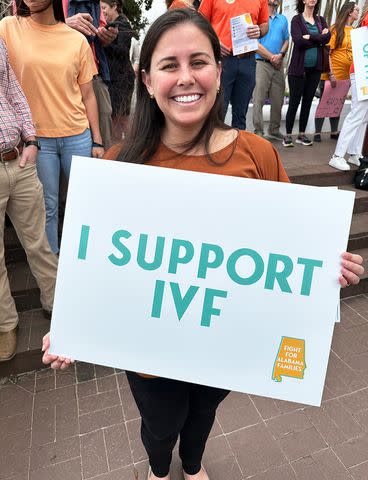Florida Mom's IVF Journey Abruptly Ends Due to Alabama Ruling: 'I Fell to the Floor and Started Crying’ (Exclusive)
Alexa Taggart was just a few weeks away from her IVF procedure when it was canceled due to Alabama’s ruling that frozen embryos are legally children

Courtesy of Alexa Taggart
Alexa and Jon TaggartAll Alexa Taggart wanted was another baby.
After suffering a miscarriage in 2017, the chemical engineer tells PEOPLE exclusively that she and her husband Jon, a Delta pilot, were able to successfully have a son, Graham, in 2021.
But after she was diagnosed with Polycystic Ovary Syndrome (PCOS) — which World Health Organization calls a “leading cause of infertility” — her doctors said, “if you want a kid, IVF is your best option.”
IVF, or in vitro fertilization, is a medical procedure where “mature eggs are collected from ovaries and fertilized by sperm in a lab,” the Mayo Clinic explains. “Then a procedure is done to place one or more of the fertilized eggs, called embryos, in a uterus, which is where babies develop. One full cycle of IVF takes about 2 to 3 weeks.”
It's a grueling process: Before a cycle can begin, candidates must undergo many genetic tests and other exams.

Courtesy of Alexa Taggart
Jon and Alexa Taggart.By late 2023, the Taggarts had successfully completed their IVF and had their egg retrieval in January 2024. It resulted in two viable embryos.
They were in the home stretch in February, wrapping up final tests required before the first implantation could occur.
“They do an ultrasound the first day of your cycle,” Taggart, 32, tells PEOPLE. “So I went in on the 22nd of February, did the ultrasound, did the blood work and was waiting for the call for those results.”
Never miss a story — sign up for PEOPLE's free daily newsletter to stay up-to-date on the best of what PEOPLE has to offer, from juicy celebrity news to compelling human-interest stories.
“They ended up calling me saying my cycle was canceled.”
The Alabama Supreme Court had just ruled that frozen embryos are legally considered children.
Although the Taggarts live in Pensacola, Florida, their eggs are stored at a clinic in Mobile, Alabama.

Courtesy of Alexa Taggart
The Taggarts have one child, son Graham.The decision came as a result of a wrongful death lawsuit brought by couples whose frozen embryos were destroyed at a fertility clinic in December 2020 when a patient entered a cryogenic nursery storage unit and removed several embryos.
But due to the decision, “no healthcare provider will be willing to provide treatments if those treatments may lead to civil or criminal charges,” American Society for Reproductive Medicine (ASRM) said in a statement condemning the ruling.
Related: Celebrities Who've Opened Up About Their Emotional IVF Journeys
For Taggart, “the problem is none of the transportation companies are willing to take the liability based on the Alabama ruling to move [the embryos.]”
“I just fell to the floor and started crying, because we literally talked about what could happen and everything and it just all came to fruition. We've been waiting so long for a kid and then to have that ripped away from you."
She continued, "This is someone else trying to control your situation that's outside of you and there's nothing you can do differently. It's some other people sitting in another courtroom controlling what you're doing in your reproductive rights. Helpless is the best way to describe it.”
The Taggarts joined a protest at the Alabama courthouse, sharing their story with others who were impacted by the ruling.

Courtesy of Alexa Taggart
Alexa Taggart“There were some cancer patients there that weren't able to freeze their eggs before they had their cancer treatments, and now they're not able to have kids naturally,” she tells PEOPLE.
On March 7, two clinics in Alabama said they were moving forward with IVF procedures after a law was passed to protect IVF in the state — but the Taggarts’ clinic was not one of them.
“I reached out to our insurance provider to see what options we have but I am hoping they will help us move the embryos to Florida,” she tells PEOPLE. “I hope that transportation companies are willing to transport them to Florida again.”

Courtesy of Alexa Taggart
Alexa Taggart with husband Jon and their son Graham.“We're just trying to do the first step of getting them accessible.”
As PEOPLE staffer Jen Juneau wrote in a first-person essay about her own experience with the Alabama ruling, “I am one of many, many Americans who has struggled against not only legal rulings like this, but also a healthcare system that continually invalidates women's health. I can only hope that the future is less bleak, for the sake of my own daughter and would-be families everywhere.”
And as Alexa Taggart tells PEOPLE, “Someone you've never met in a different state is controlling whether you can have a kid or not."
For more People news, make sure to sign up for our newsletter!
Read the original article on People.


